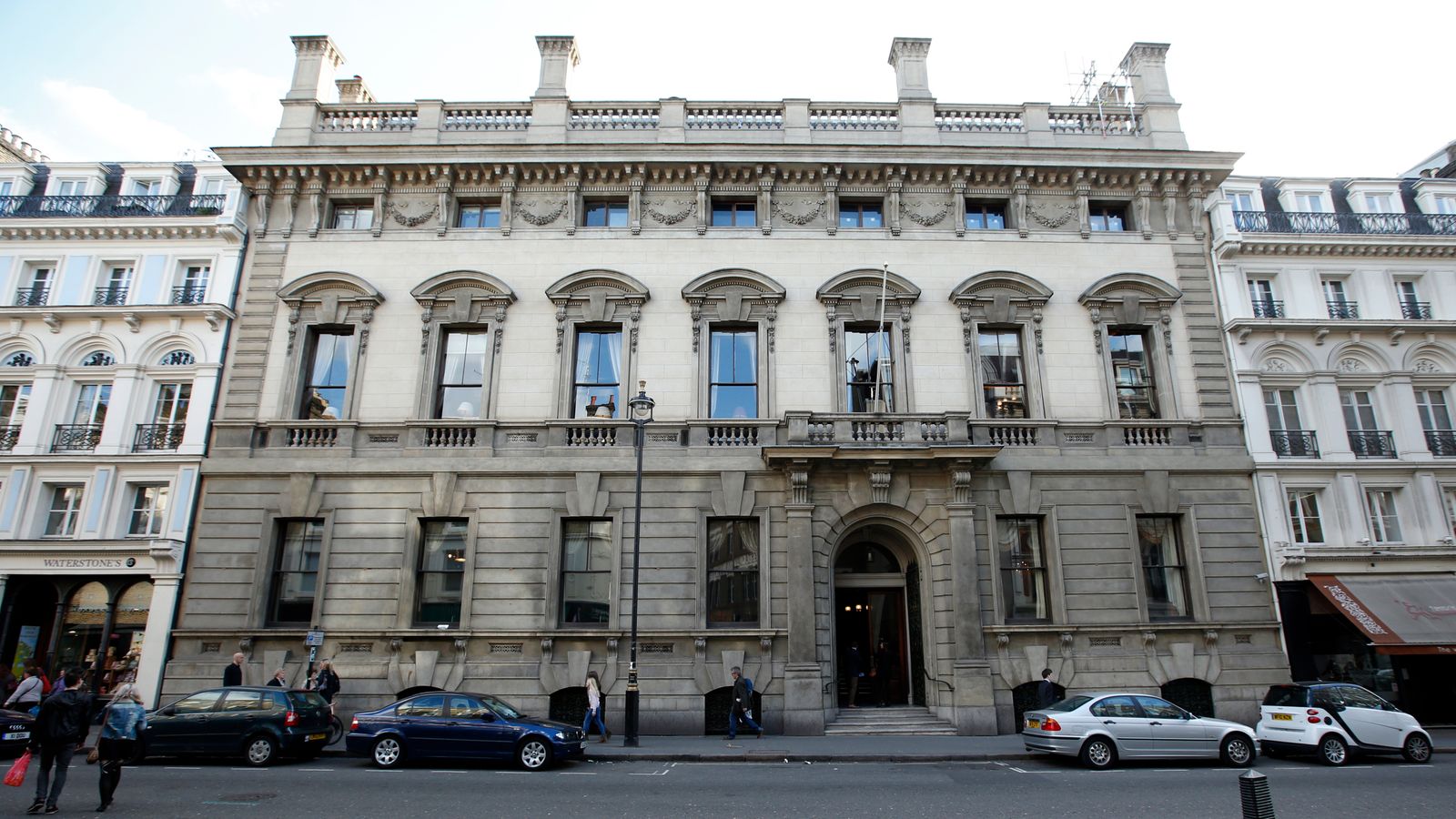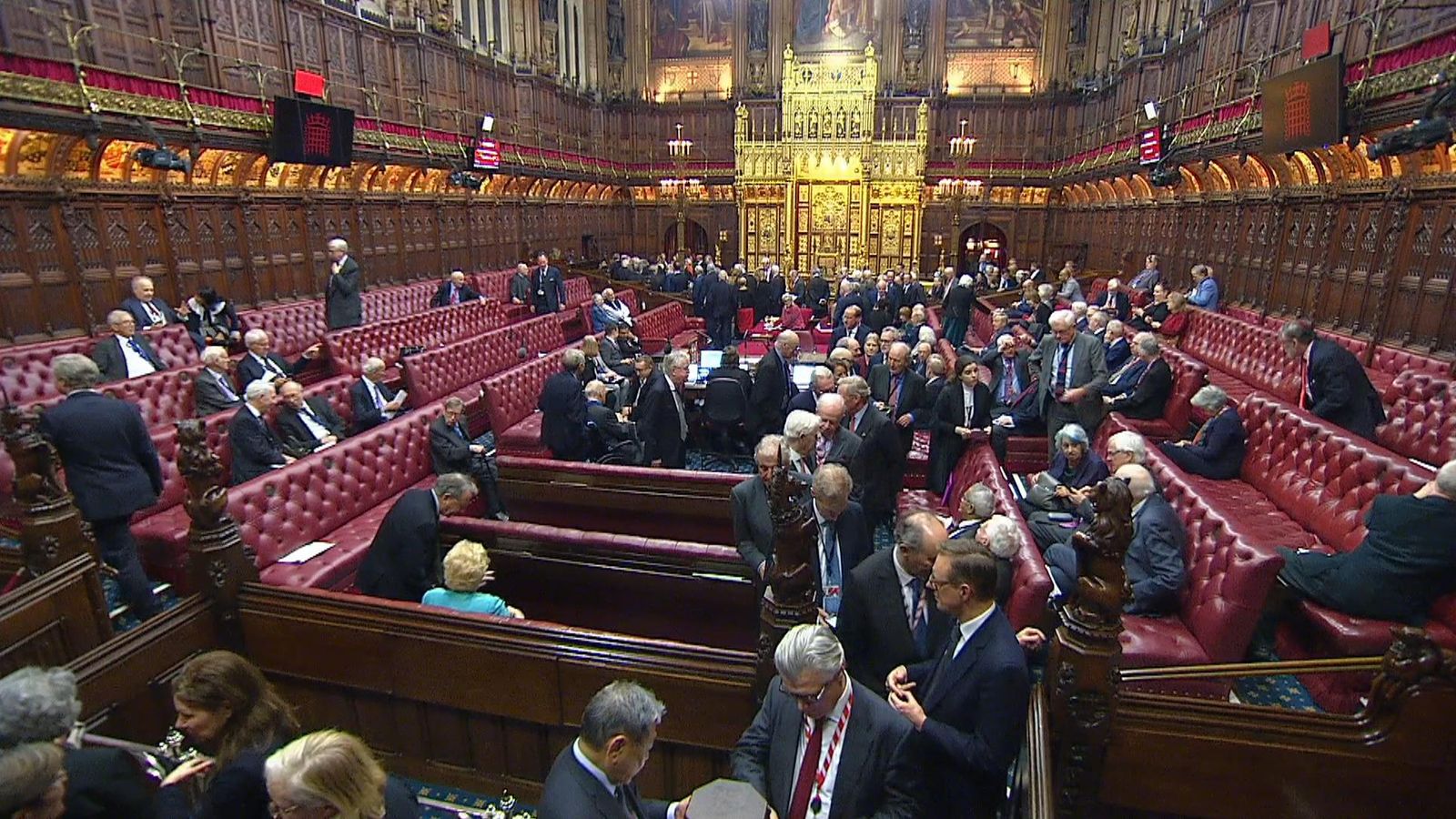The Garrick Club is a central London gentlemen’s club, the membership of which is drawn from across the British establishment.
Founded in 1831, it is one of the oldest members’ clubs in the world.
Among its ranks are said to be 1,500 members including at least 160 senior legal professionals, at least 10 serving MPs, dozens of Lords, heads of public institutions, actors, artists and businessmen.
King Charles is even said to be a member, along with around 150 men with knighthoods who cough up the around £1,000 a year to get access to its dining rooms, luxury lounges and exclusive bedrooms.
Women are effectively banned from becoming members and until 2010 were barred from even visiting the club as the guest or spouse of a member.
Even today, female guests are ushered through a side door of the club’s headquarters in the heart of London’s West End and seated away from the dining room’s main table.
All guests – i.e. non-members who are only allowed in if they are with a member – are handed menus without prices and are not allowed to pay “for anything whatsoever”. Tipping individual staff is also forbidden.
How Chinese takeaway worker led police to Bitcoin worth £3bn in Britain’s biggest ever cryptocurrency seizure
Royals latest: King’s medical records not accessed in alleged security breach as ‘three staff members investigated’
Junior doctors vote overwhelmingly to continue striking over a further six months
The exclusive club recently hit the headlines after The Guardian leaked a list of some of the most prominent members, including Deputy Prime Minister Oliver Dowden, Levelling Up Secretary Michael Gove and former minister Jacob Rees-Mogg.
Other politicians listed included Gove’s department colleague Simon Hoare, former justice secretary Robert Buckland and former Tory MEP Lord Hannan, plus Kwasi Kwarteng, who was elected a member in 2022 just days before his brief stint as Liz Truss’s chancellor.
Simon Case – the UK’s chief civil servant – resigned his membership today following criticism over the male-only entry requirements.
In the arts, Succession stars Brian Cox and Matthew Macfadyen, Downton Abbey’s Hugh Bonneville, plus Hugh Laurie, Stephen Fry, Benedict Cumberbatch, Poirot actor David Suchet and Damian Lewis are said to be members.
Former England and Liverpool manager Roy Hodgson, journalist John Simpson, Dire Straits guitarist Mark Knopfler and designer Paul Smith were also named on the list.
Previous members included actor Sir John Gielgud and writers such as Charles Dickens, HG Wells and Winnie-The-Pooh author AA Milne, as well as composer Edward Elgar.
Read more:
Roy Hodgson in hospital after being taken ill
New extremism definition unveiled despite warnings
Ex-Gogglebox star is Labour candidate to take on Oliver Dowden
In 2011, Joanna Lumley tried to become the first female member in the club’s history when she was proposed by Hugh Bonneville.
The club consulted a barrister and concluded women could not be proposed as members, despite equality legislation, and so she was turned down.
Numerous attempts to change its admission policy have been resisted by members who are determined to keep its selective traditions in place.
Jeremy Paxman was once blackballed by the club in 1993 over his anti-establishment book, Friends In High Places – but was readmitted in 2004.
History
It was founded in 1831 by a group of gentlemen as “a literary society” with the aim of promoting drama and collecting scripts for plays.
The first members were described as a “sophisticated and cosmopolitan group” that included 24 peers of the realm as well as writers, actors, musicians and publishers.
The club was named in honour of the actor and playwright David Garrick, whose acting and management at the Theatre Royal during the previous century had become lauded by the 19th century.
When deciding on membership, its original committee states “that it would be better that 10 unobjectionable men should be excluded than one terrible bore should be admitted”.
The club’s website claims this tenet ensures there is a “lively atmosphere”.
The building where it currently sits has been the club’s home since 1864 and the street was later renamed Garrick Street after the playwright.
In 1956, the rights to the Winnie-The-Pooh books were left to four of AA Milne’s beneficiaries – his family, the Royal Literary Fund, Westminster School – and the Garrick Club.
In 1998, members rejected the chance to pocket a multi-million-pound windfall from the sale of the rights to the popular children’s books to Disney.
But three years later, the club caved and Disney secured the film rights for 25 years.
It left the Garrick as the richest gentlemen’s club in the country, sitting on around £60m.
The club still owns one of the biggest theatrical libraries in existence, featuring a haul of manuscripts, plays, documents plus a huge collection of paintings and drawings.










